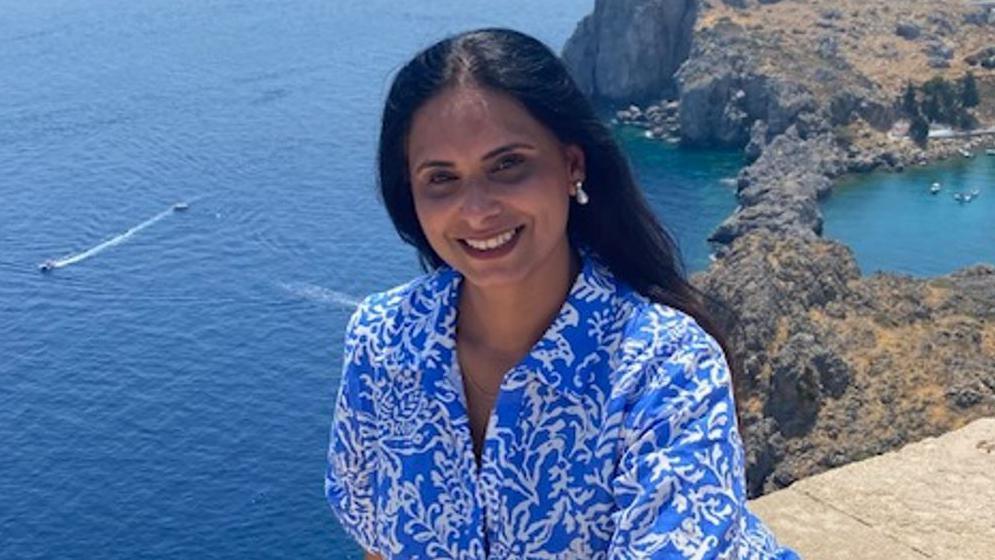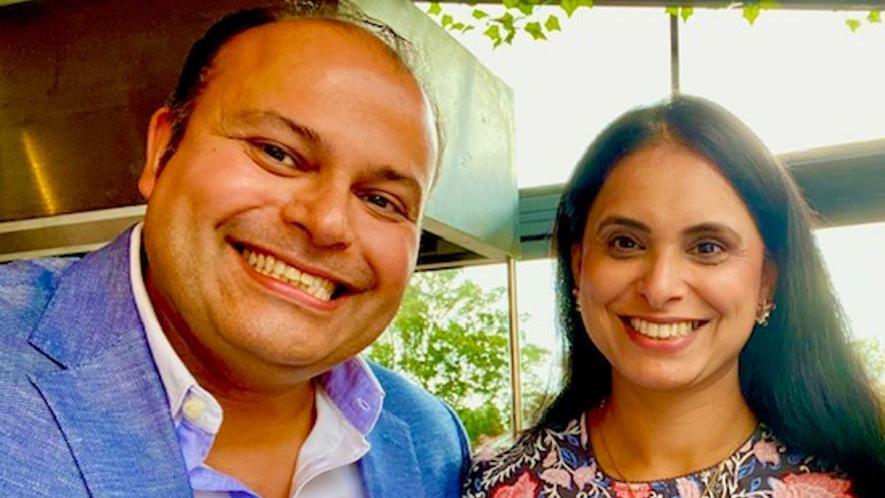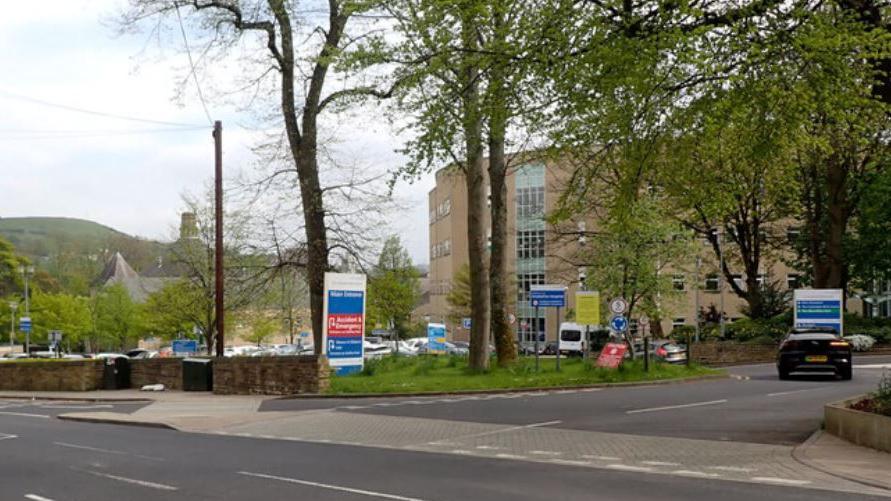Stroke victim, 44, died due to 'postcode lottery', husband claims

Jasbir Pahal, 44, had a stroke in the early hours of 13 November 2022 and died on 30 November
- Published
A woman who died after having a stroke was only offered aspirin by hospital staff when she instead urgently required life-saving treatment, an inquest has heard.
Jasbir Pahal, 44, a teaching assistant, died in November 2022 after suffering a “massive” stroke at a weekend.
Mrs Pahal's husband accused staff at Calderdale Royal Hospital in Halifax of “giving up” on his wife rather than rapidly sorting a transfer to a site offering 24-hour treatments to remove blood clots.
He told Wakefield Coroners’ Court a “postcode lottery” meant the mother of four did not gain the help she needed.
The inquest into her death heard that Mrs Pahal, who was described as “passionate” about teaching and “much-loved” by colleagues and children, was a fit non-smoker who did not drink alcohol.
In the early hours of 13 November 2022, her husband, Satinder Pahal, awoke to find his wife on the floor after she had fallen out of bed.
In a statement read out on Mr Pahal's behalf by area coroner Oliver Longstaff, he said he quickly recognised his wife had suffered a stroke after having seen NHS campaigns describing the signs.
He said a first responder arrived at their home in Huddersfield 20 minutes after he dialled 999, but an ambulance and paramedics did not come for more than 70 minutes amid foggy driving conditions.
This was four times longer than target response times, the inquest heard.

Mrs Pahal and her husband Satinder had been married for 23 years when she died
The hearing was told that a CT scan of Mrs Pahal carried out at the hospital revealed a blood clot which was suitable for “intervention” such as “clot buster” thrombolysis medicine or a procedure called a mechanical thrombectomy.
But her husband said he was told too much time had passed for thrombolysis to be used, with mechanical thrombectomy locally unavailable outside the hours of 08:00-15:00 Monday to Friday.
“Had I driven myself, we would have arrived in the appropriate time for thrombolysis, which would have saved her life. I have to live with this thought for the rest of my life,” his statement said.
A list of 20 questions and concerns were read out on behalf of Mrs Pahal’s family, including the ambulance delays and why she was not automatically sent to a hospital with a 24-hour stroke care service.
Mr Pahal’s statement also accused hospital staff of leaving her to “deteriorate and die”.
“The staff gave up on Jasbir,” he alleged.

Mrs Pahal was taken to Calderdale Royal Hospital in Halifax (pictured), before being taken to Leeds General Infirmary
The inquest heard Mrs Pahal was taken in another ambulance to Royal Stoke University Hospital, but the vehicle was later told to divert and went to Leeds General Infirmary instead.
Her family told the hearing that Salford Royal Hospital was 32 miles (51km) away from where she was initially taken to hospital and that site offered a 24-hour mechanical thrombectomy service.
However, the inquest heard that no pathway was in place to automatically take her there.
Mrs Pahal arrived at Leeds General Infirmary approximately nine hours after the original 999 call, and it was there she underwent an operation to reduce swelling on the brain.
However, her health continued to worsen and she died on 30 November, the inquest heard.
Mr Pahal’s statement said he had since discovered a 24-hour mechanical thrombectomy service was not available in “large parts of the UK”, calling it a “postcode lottery”.
“If she had lived 10 miles further west, she’d have automatically been given 24-hour stroke care”, he said.
Calderdale and Huddersfield NHS Foundation Trust said it would issue a statement following the conclusion of the two-day inquest.
Yorkshire Ambulance Service has been approached for comment.
The inquest continues.
Follow BBC Yorkshire on Facebook, external, Twitter, external and Instagram, external. Send your story ideas to yorkslincs.news@bbc.co.uk, external.